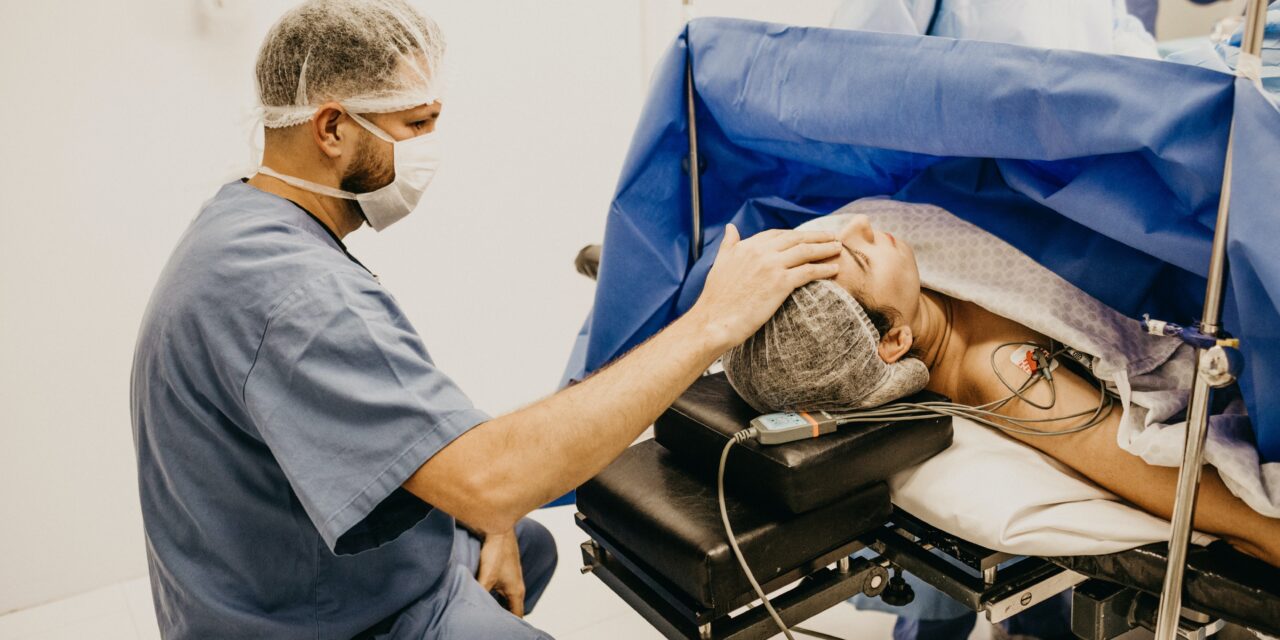Medical school. It’s one of the most difficult times for any future doctor. However, at the same time, it’s one of the most rewarding times, especially for neurosurgeons. Although students usually choose to take the med school path as teenagers, there are those who make the decision while in college.
Med students motivated by the money usually get an excellent paying job as a primary physician. But those who do it for the passion, end up getting an eye-watering salary, typically around a quarter of a million dollars a year.
Below are six steps that will help you become a doctor. Are you ready?
Have The Passion And Motivation
The first step to becoming a medical doctor is having the passion and motivation to be one. It may sound cliche, but you can do whatever you put your mind to. If you dream big, you will get big results. The lower your ambitions, the lower the results you will achieve.
Whether you’re motivated by the money, science, or helping with saving lives, having passion can get you through medical school more smoothly. Every time you lose a bit of motivation, remind yourself the reason why you chose to study medicine in the first place. That will give you the spark to keep going.
Get An Undergraduate Degree
Once you’re armed with passion, you will need a four-year degree from a nationally accredited university. Although majoring in chemistry or biology might be smart, you can get your degree in any field.
As a part of medical school requirements, pre-med courses includes one year of biology with lab, one year of general chemistry with lab, one year of organic chemistry, one year of physics with lab, and one year of English.
Some people even go on to get their Master’s degree before going to med school. However, this is not mandatory, but it could increase your chances of getting into a good school.
Furthermore, it is recommended to begin the pre-med courses before taking the MCAT test, which is the Medical College Assessment Test – the exam you need to pass to get into med school.[1] And speaking of the MCAT, let’s have a little talk about that.
Pass The MCAT Exam
The Medical College Assessment Test is an exam every future medical doctor needs to score high on. The most recent significant change is that the test is computerized, and behavioral sciences are required to pass, along with biology, chemistry, and reasoning skills.
One of the best ways to prepare is through sample tests and MCAT preparation books from Barnes N Nobles or Amazon.[2] Here’s a healthy bit of advice: invest your money in commercial preparation courses, practice books, flashcards, and Excedrin (trust me, you’ll need it!).
Before taking the test, avoid foods high in fat as they will make you sleepy. Also, there is no such thing as a “lucky guess”. Sometimes, instincts work better than random guesses, as you may have the answer somewhere lost in the unconscious part of the brain.
Surviving Med School
Once the med school application and interview process is over with, it’s time for your first year of med school. In orientation, you will be advised on how grueling med school is. The volume of information you will need to absorb each year is equivalent to getting two Master’s degrees – yes, it’s that difficult.
However, as stated in the first tip, if you are motivated and passionate about becoming a doctor, then all the hard work won’t be as intense. Additionally, the level of coursework is not the problem in med school. Instead, it’s the amount of memorization.
U.S. News & World Report puts it like this: “High school is like a lawn sprinkler. College is like a garden hose. And medical school is like a fire hose of information.”[3]
One common mistake of first-year students is working part-time while in med school. As a result of the hefty student loan bill, new students are tempted to find a job to help pay those loans early. However, that decision will soon backfire.
Since med school requires up to 60 hours a week of studying, getting a job will increase the chances of failing courses. But that doesn’t mean you won’t survive. As long as you develop a study plan and put in those long hours, you will get through it.
Don’t make too many friends because there are never enough hours to study and have time left over to socialize. Keeping in touch with family and close friends is also a priority for success. And let’s not forget exercising, as it can help you retain memory before an exam, according to Mental Daily.[4]
During the third year, you will be able to choose the specialization you want to pursue. For example, psychiatry will allow you to take courses in psychopathology and psychopharmacology, among many others.
Graduation And Residency Program
In the United States, over seven percent of medical students are unsuccessful in accomplishing their goals of becoming a doctor. And here’s why: some students arrive at med school with expectations to become a doctor out of their parents’ goals and not their own. As a result, the workload becomes too hefty for them.
But for those that make it to graduation, the ceremony is one of the biggest highlights of their lives. They are informed of where they are going to do their residency. The residency program is required for any future physician to practice medicine with an unrestricted license.
The better your overall grades in med school, the better the hospital will be for your residency. For those looking to get their foot in the door for family medicine, residency can range from three years and goes up to eight years for neurosurgeons.
Opening Up Your Practice
You have a few choices after graduation and supervised training. Typically, it comes down to working in a hospitalized setting or opening up your medical practice. To open up a practice, you will first need to consult with health care attorneys and accountants. Although the cash flow is great, opening up a practice can be a long expensive process and also very daunting. But in the end, its benefits largely outweigh its cons because it’s still rewarding.[5]
Bottom line: Becoming a doctor is a long distance race, involving many years in the making. If you don’t make it to the end for some reason, remember that becoming a medical assistant position is an option and is a position where you can make a decent salary. As Clement Stone once said, “Aim for the moon. If you miss, you may hit a star.”
Read more other articles in the same category here.
Reference
| [1] | ^ | https://students-residents.aamc.org/applying-medical-school/taking-mcat-exam/ |
| [2] | ^ | https://www.kaptest.com/mcat/mcat-practice/mcat-pop-quiz |
| [3] | ^ | http://www.usnews.com/education/best-graduate-schools/top-medical-schools/articles/2014/09/04/avoid-common-mistakes-as-a-first-year-medical-student |
| [4] | ^ | http://www.mentaldaily.com/article/2016/10/going-for-a-run-can-help-studying-for-exams/ |
| [5] | ^ | https://www.nerdwallet.com/blog/small-business/how-to-start-a-medical-practice/ |
This content was found at https://www.lifehack.org/510466/how-become-doctor-6-simple-steps






Recent Comments